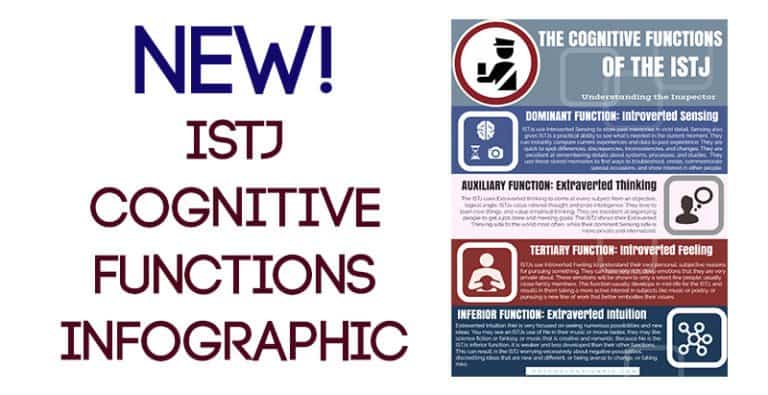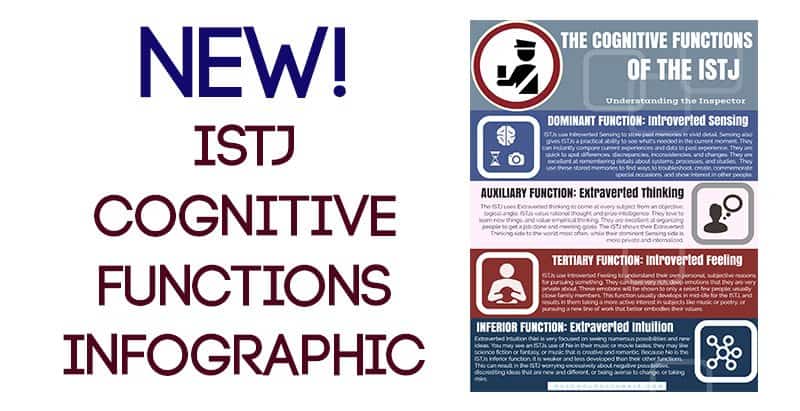5 Tricks for Succeeding in Your Career as an ISFJ
Are you an ISFJ trying to find out which career suits you best? Have you ever wondered what natural abilities you can bring to your ambitions and dreams? I hope this article will help!
Not sure what your personality type is? Take our new personality questionnaire here. Or you can take the official MBTI® here.

Table of contents
1. Utilize Your Natural Strength
For ISFJs to feel successful in the workplace, they must acknowledge what they were built for. ISFJs have most of their focus in Si (Introverted Sensing), followed by Fe (Extraverted Feeling). When paired, SiFe grants ISFJs a natural strength in cataloging information about the people around them. ISFJs can easily track what’s important to others by tuning in to how individuals spend their mental and physical energy. ISFJs often make other people feel cared for given this subconscious ability to take in what others say. These Si dominants keep anecdotal knowledge humming internally like keepsakes. One can easily see how useful this trait can be when it comes to human dynamics, yet its usefulness might not be instantly clear when considering a career setting. In professional settings, “compulsively remembering things about people” usually isn’t listed under “desired skills.”
Although most positions don’t seem to place significant recognizable value in this ability, I have found this skill particularly useful in career fields like education wherein knowing significant details about students allows for an easier tracking of their progress and needs. If I know Bruce will actually complete his writing assignment if he has a pen rather than a pencil, then by golly I am going to find him a pen. (At present, I work with high school students and I cannot emphasize how much squabbling occurs over writing utensils and their functionality.) Adults can also be incredibly picky about a range of sensory things, the most prototypical example being, “I can’t start the day without a cup of coffee and I prefer my coffee ____.” That’s a sensory need, darling. A sensory need that can be tracked, cataloged, and used in favor of better outcomes for every individual under the influence of that person.
The ability to remember facts about people may seem somewhat mundane, but this strength can apply rather broadly and holds within it unlimited potential. Wars, for example, could not be won without some strategy. The best strategy takes information on other people, which is exactly what ISFJs are collecting every day. Who better to conquer the opposition than the ISFJ who tracks the day-to-day lives, preferences, and weaknesses of the opposing leader?
No one.
We’re BAMF.
War might be an extreme example, but ISFJs do have a tendency to utilize their natural strength within any position they find themselves in. They will note the smaller details about the people around them that others don’t pick up on, such as what their coworker’s favorite drink is or the specific way their boss likes the paperwork filled in. ISFJs will also track the general likes and dislikes of their work community, learning the best ways to maneuver (yay, strategy!) within their environment in order to accommodate the social standards. The ISFJ’s ability to pick up on significant details concerning other people helps the ISFJ remain connected and helpful to those around them. Harnessing this gift will enable the ISFJ to maneuver through the workday with a subtle assuredness.
Knowledge is power, after all.
2. Be Aware of Your Energy Levels
ISFJs tend to be task-oriented and, as David Keirsey would say, prefer to work “behind-the-scenes.” The ISFJ’s Si lends itself to spotting discrepancies in paperwork, forms, objects, and so forth. Although ISFJs tend to like individual work, they usually aren’t fulfilled by positions where human interaction is completely absent. Putting ISFJs in a four-walled office with no one to discuss their tasks with—which removes the ISFJ from their natural strength to catalog information about people—may cause the ISFJ to feel empty over time. ISFJs do tend to like people and can befriend those they work alongside quite easily, but as they are introverts their effectiveness comes from balancing their energy levels through adequate time alone and amongst others (often in one-on-one or small group scenarios).
Every ISFJ will be aware of their energy levels and how much extroverting they can handle—one size does not fit all of any type. While some ISFJs will prefer to work alone with at least intermittent doses of interaction, others need consistent interaction with others and intermittent breaks. Teaching, in my opinion, is a great “divider” when looking at one’s extroversion capability, regardless of the individual’s type. Teaching positions seem best suited for people who have the stamina to be “on” for a large group of students roughly six-eight hours per day. Most introverts would find the idea of speaking that much and having to be so outwardly aware tiring. Not impossible, but tiring nonetheless.
I’m personally exhausted just imagining orating to a group for a solid hour, let alone six.
I’m not even sure if I could talk about Mr. Rogers for that long.
Who am I kidding? I totally could.
Forgive my namedropping, but he’s a dang angel.
For the ISFJ wanting career success, finding how much interaction is manageable without feeling drained by the end of the day will be especially important. Auxiliary Fe can be tricky in that IxFJs want to interact with others and keep up with the mood of the room, however, if they overdo it and remain “on” for too long, it’s as though their minds shut down. IxFJs have to post-process the information they take in, otherwise, their mind becomes cloudy. The more interaction an IxFJ has, the more information they will have to sort through later. Thus, an awareness around energy levels is necessary for the best possible career trajectory to come into awareness.
We can escape a lot of things, but we cannot escape ourselves.
3. Get Comfortable with Change
For the ISFJ seeking career success: expect change. That’s probably the worst assertion one can make to an ISFJ who wants to trust that the past replicates itself over and over. But it’s truly the only way to stay within a position that demands some sense of being dynamic. I doubt any job exists that never changes procedures, rules, protocols, demands, etc. If an ISFJ wants to develop a successful career trajectory, the reality of inferior Ne (Extraverted Intuition)—which produces a deeply embedded fear of change by nature—must be taken into consideration. Resistance to change will be a constant obstacle in need of awareness and regulation in the workplace.
I currently work as a paraprofessional at a local high school. I work with roughly eight students per day who have been “assigned” to me in four different classes. In this position, I basically track the behavior of students and help them complete assignments. My role is one of encouraging students towards success by redirecting behaviors and encouraging engagement.
Given the realities of the pandemic, our school ran on a hybrid system for several months. Half the students flip-flopped which days they came to the school or stayed home to video in. Due to this reality, I had only a loose confirmation on what to expect for the day. My schedule shifted often. This scenario often bothered my deeply ingrained Si standards as I tend to like knowing where I will be and I prefer working with individuals I’ve established some familiarity with (both teachers and students). However, I couldn’t allow this heavy preference for knowing what to expect to outweigh my will to do what I needed to for the collective. In the time of COVID, I’ve had to be flexible with the unknown.
My low intuition is crying.
Trust me.
For an ISFJ, not having certainty around where one will be within a given day can be nerve-wracking. We want to know what to expect and to have a general outlook for the day. Due to inferior Ne, we tend to worry about unknown situations and the potential negative outcomes of jumping into something unexpected. ISFJs want some control over the situations they find themselves in so as to avoid the potential drastic catastrophes that come from the unknown.
Certainly, change in the workplace cannot be regulated to a global pandemic alone. Jobs naturally shift, even in subtle ways. Whenever a goal is set, change is automatically guaranteed due to the natural process of a pursuit. A goal is unreachable without taking necessary steps that showcase change.
I once worked in a museum where our goal was to catalog every artifact into the computer system. Cataloging effectively included photographing artifacts, researching artifacts, placing tags on artifacts, moving artifacts to safer locations, and so on. We started from one side of the museum storage center and over the course of months, moved to the other. By the time everything was cataloged, the physical and digital environment of the museum storage center had changed. Even our system of labeling updated.
Change is inescapable.
4. Lean into Your Preference for Collaboration
ISFJs in the workplace tend to focus their attention on meeting the daily needs of people and their expectations. For this reason, many ISFJs find themselves in assisting or helping roles—often in a school system, library, office, or otherwise. Although most ISFJs do not typically desire leadership roles in organizations, they can be quite compassionate leaders when they do find themselves in charge. More often than not, it seems quite natural for ISFJs to settle into a space where they provide one-on-one assistance to a range of people. As such, ISFJs have a tendency to make leadership decisions more democratic.
I worked at an early childhood center for a handful of years, teaching children their numbers and colors. I liked that it involved a strict daily routine that outlined the day (morning snack, class reading time, worksheets, lunch, outside time, art activity, etc.) and provided space for creativity when it came to projects. The casual friendships I made with my coworkers, supervisors, students and the student’s parents made the facility feel more familial in nature. When I had to take a leadership role, I welcomed input from the people around me and accepted the workable suggestions heartily. ISFJs generally work well in the context of striving towards a mutually-agreed-upon goal. In my case, we were all working together to help the children learn, be creative, and develop an awareness of time and structure.
As concrete observers of the world, ISFJs know full-well the trickle-down effect of leadership. I would argue that’s why most ISFJs tend to avoid solitary leadership roles. When what one person decides affects multiple people as it trickles down to the day-to-day lives of those “on the ground,” the responsibility of making the right choice heightens. And what judgment function might ISFJs use to discern the right choice when decisions are meant to be had? Fe. Thus, collaborative networks are usually the go-to method for the ISFJ when problem-solving.
As anyone who has worked with children knows, keeping track of a group of them is not an easy task and children are generally not angelic beings—quite a number of problems need solving when chaos walks about in large groups of two feet tall. It’s hard to describe the shock that overtakes you after a two-year-old child knocks a glass fish tank (which had been firmly attached to a table with Velcro five seconds before—AKA this child was He-Man) to the floor and it shatters, leaving fish to flop against the floor for their literal lives while the children stare at the water filling their ABC carpet. But I lived it, my anxiety flaring as I tried to save the fish from their tragic end, the children from the sharp glass, and the carpet from its watery grave. Without the quick collaboration, I shared with two other teachers—all-the-while keeping multiple concerns in mind—I’m doubtful the situation would have been managed without taking on a pescatarian diet.
I laugh when I hear that ISFJs “should” work with children because ISFJs want to count on stable certainties. And if there is any certainty around children, it’s that chaos ensues when we put them together. Chaos is detrimental to inferior Ne. Once the ISFJ experiences a child knocking a fish tank over once, that ISFJ will worry about it (or worse) happening again in every other context in which those factors reemerge.
Will I ever go to an aquarium again?
Hard pass.
The potential for such chaos can happen at any time in the workplace, which made the ISFJ’s ability to “Fe” the situation through collaboration exceedingly important. There’s a reason the auxiliary function is termed the “tool” function. Use it well.
5. You Can Be a Helper in a Multitude of Ways
The hard truth is that most “helper” or “service” roles that ISFJs tend to gravitate towards are not well paid, nor widely “respected” as grand undertakings like entrepreneurship tend to be. I haven’t heard many ISFJs complain about pay or respect, however, I would like to provide another lens I discovered that ISFJs could use to widen their awareness of potential career roles. It seems as though schools, hospitals, and libraries are predominantly associated with ISFJs in most type articles—for good reason—but I would like to expand the conception of what roles might be ideal.
I recently read Ashley Stahl’s Get Unstuck, Discover Your Direction, and Design Your Dream Career and gained some valuable insight (for any type). Stahl recommends looking into your skillset, core values, and core nature in order to determine the wide range of job roles that apply to you—a unique method that probably doesn’t come to mind if an individual’s Ne isn’t high. Spring-boarding off of her solid advice, I will note that ISFJs generally seem to use their relational skills to provide comfort through assistance.
An ISFJ could thus find an ideal career as a therapist, an IT Tech, or a banker, given that all of these roles could benefit from someone who competently listens, relates, and knows how to ease through that competence. If the ISFJ can shift their career focus away from specific job titles (assistant, teacher, nurse, etc.) and towards their general function (providing help through relational skill), then their options might feel more expansive.
Typology might be a classification system, but it can prove helpful in broadening the scope of what is possible for the individual.
What Are Your Thoughts?
Did you enjoy this article? Do you have any insights or suggestions to share? Let us know in the comments!
Find out more about your personality type in our eBooks, Discovering You: Unlocking the Power of Personality Type, The INFJ – Understanding the Mystic, and The INFP – Understanding the Dreamer. You can also connect with me via Facebook, Instagram, or Twitter!
About the Author:


Subscribe to Our Newsletter

Want to discover more about personality type? Get the inside scoop with Susan Storm on all things typological, along with special subscriber freebies, and discounts on new eBooks and courses! Join our newsletter today!













Wow. I love the insights in this article. I wish I’d read it 40 years ago, and not in retirement. It really helped me make sense of how and why I was successful or unsuccessful in certain jobs during my working life. Thanks!
-ISFJ, Enneagram 9 (and 4)
I’m so glad you enjoyed it! I’m gonna pass your comment on to the author (Jami) 🙂
I love the part about being a helper even if you don’t have a helping profession. I’m an ISFJ attorney, and I really struggle with this. I wanted to be a teacher, but it didn’t pay enough. Everyone else in my family has a helping profession, and I feel really envious of that a lot.
I’m an intuitive myself and I really enjoy getting to peek into another world via the articles written by a sensor. I also enjoy Jami’s sense of humor, too–I was laughing, but also filled with sympathy, when I read about the fish tank debacle!
I have just discovered I am an ISFJ and I’m fascinated by how true to type I am. Just reading this stuff around career, I have recently set up my own business as a marketing consultant. I have always known that I want to help people but for some reason the caring professions didn’t appeal to me. I can completely see how I am driven to look after others through my work, to help business owners to be successful . Its a real eye opener and I think that this will help me to find my niche. Thankyou!